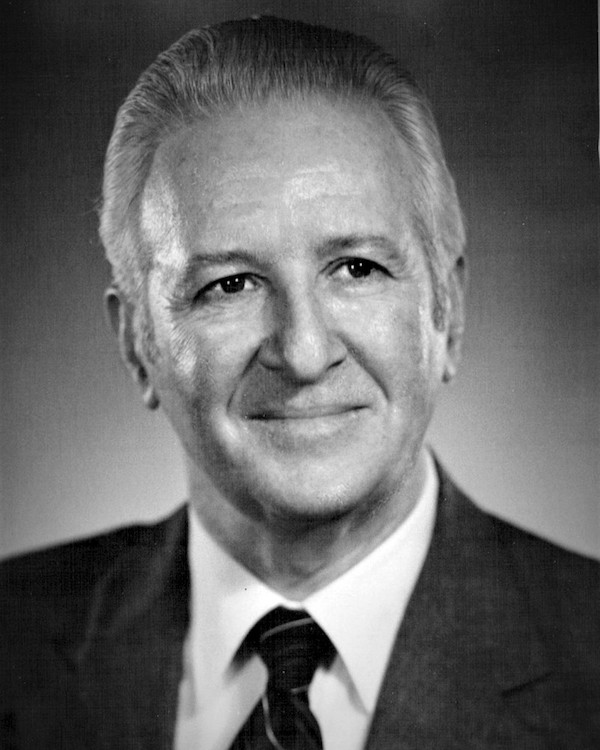Norman Potter, ‘Food Science’ author, dies at 96
By Krisy Gashler
Norman Potter ’50, an award-winning teacher and mentor who wrote the foundational textbook “Food Science,” died March 6 in Lexington, Kentucky. A professor emeritus of food science, Potter was 96.
Potter spent 13 years working in the food processing industry before joining Cornell’s Department of Food Science in 1966. His research centered on food processing, especially how it affects the microbiological safety and quality of foods, said Robert Gravani, M.S. ’69, Ph.D. ’75, a former colleague and professor emeritus of food science. Potter developed multiple food processing innovations and was issued six patents for his work, including three relating to ice cream and frozen desserts.
“As far as the impact that these patents have had on the food industry, more than 50 U.S. patents in the late 1960s cited Dr. Potter’s patents as relevant to their work,” Gravani said. “Dr. Potter is certainly one of the pioneers in the field of food science education, and he has unquestionably left an indelible mark. His knowledge of the field, the rich and engaging teaching style that he employed, and his willingness to interact with students left those in his classes with the desire to learn more about food science.”
Among other classes, Potter taught introductory food science until his retirement in 1992. The course materials formed the basis for “Food Science,” which was published at a time when there were very few textbooks related to the topic, Gravani said.
“The book was very successful and popular, and it has been used around the U.S. and world to introduce students to the science of food,” Gravani said, noting that the textbook has been revised through five editions and translated into multiple languages, including Spanish, Japanese and Chinese.
Colleagues and former students remembered Potter as a caring and inspiring teacher whose role as a mentor continued long past students’ graduations. In recognition of his excellence in teaching, Potter received the national William V. Cruess Award from the Institute of Food Technologists in 1985.
“He was such a good mentor for students – they didn’t even have to be in his lab – he just had a heart for all the students,” said Kathleen Nelson Feicht, M.S. ’76, Ph.D. ’78, who was advised by Potter during her graduate studies and is now president and founder of Asta Food Research, a food industry product development and consulting company. “Long after graduation, he’d recommend me to be on editorial boards, or encourage me to join organizations. He was such a wonderful mentor and professor; it was just what I needed, and I think he influenced a lot of students that way.”
Steven Young ’71, Ph.D. ’75, was admitted to Cornell as a food science major but intended to transfer to chemistry; Potter’s Food Science 100 course changed his plans.
“Norm was one of very few professors in the department who had real industry experience, and he was able to talk about food science in a way that captured my imagination and kept me in the department,” said Young, principal of Steven Young Worldwide, a food industry consulting and training company that specializes in the science and technology of ice cream. “Norm was the kind of guy that was proactive in advising: He enjoyed knowing what students were involved in; he’d follow up to see how things worked out; he was an adviser to everyone.”
Potter was born Oct. 10, 1926, in New York City and grew up during the Great Depression. As a teenager during World War II, Potter spent summers working in the Victory Farm Volunteers Program, through which city youth worked on farms to alleviate wartime labor shortages. He enlisted in the U.S. Navy at 18 and served through the end of the war.
He attended Cornell on the GI Bill, earning a bachelor’s degree in bacteriology, then earned his master’s and doctoral degrees from Iowa State University. Potter met his wife, Adele (Hoffstein) Potter ’50, while at Cornell. The couple were married for 73 years, and Adele Potter died just three weeks before her husband. Potter is survived by sons Daniel ’74 and Michael ’77, four grandchildren, seven great-grandchildren, and extended family.
Media Contact
Get Cornell news delivered right to your inbox.
Subscribe

